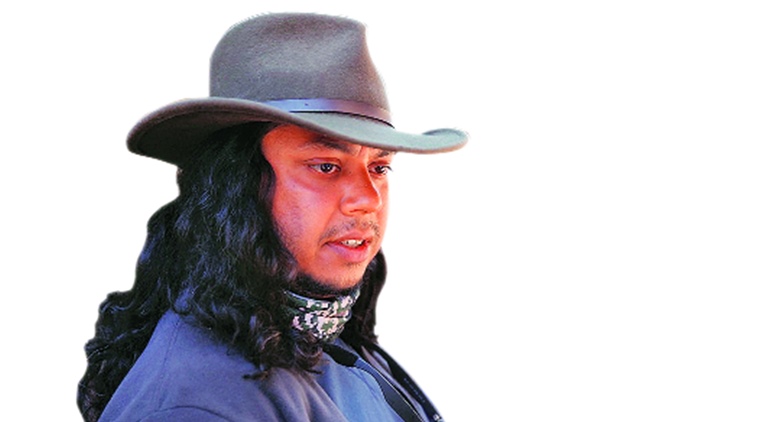
Deb Medhekar on Bioscopewala: The film has to do with a regime that crushes creativity, freedom of expression
Written by Dipti Nagpaul | Updated: May 22, 20..
Written by Dipti Nagpaul | Updated: May 22, 2018 12:15:56 am A still from the movie
Born to a Maharashtrian mother with a fascination for Rabindranath Tagores poetry, Deb Medhekar grew up listening to Kabuliwala. According to the 36-year-old ad filmmaker, his feature debut is as much an homage to Gurudev as to the art of cinema. In this interview, Medhekar talks about why he chose to make his protagonist a bioscopewala and what made him choose Danny Denzongpa for the role.
The film is an adaptation of Kabuliwala. What made you change his profession to a bioscopewala?
I came in at a level where story writer Sunil Doshis core idea had him as a man who operates a bioscope. In his version, the man ran a cinema back home in Afghanistan that closed down and he came to India. Personally, I am obsessed with meta film and commentary on cinema through cinema. When I read Sunils version, I saw in it a great opportunity. Bioscope became a way of cinematic storytelling and the narrator is a 30-year-old documentary filmmaker Minnie, who is not the same little girl anymore. The film ends up becoming a tribute to cinema because the bioscopewala taught her how to tell stories and she has gone on to become a filmmaker and we explore what role cinema has played in her story. In her sense of wonderment for cinema as a child, the story is also autobiographical. She reflects the same enthusiasm, I, or for that matter most of us, feel for the medium.
What made you pick Danny Denzongpa to play the titular role?
Sunil had Danny in his mind when he presented the story to me. But the actor also fit the part for another reason. In my stories, I also tend to also explore subaltern groups. When we look at Afghanistan, Shia and Sunni are the two big ethnic groups. Within the Shia are the Hazara, the community that is said to be the descendants of the 1000 soldiers Ghenghis Khan left behind. Because he was a Mongol, some members of the community also have Oriental features. Dannys looks and personality allowed me to layer the story I try to tell with the Hazara culture and their oppression by the majority Sunnis.
 Deb Medhekar
Deb Medhekar
When you take the story forward, you also set it against the backdrop of the trouble in Afghanistan.
The main commentary in the film has to do with a regime that crushes creativity and persecutes those who assert their right to freedom of expression. It talks of how creative expression will find a voice and a way even in such times. At the same time, the film looks at exodus, diaspora, its need to find a new home but not being able to fit in and the desire to go back to where one migrated from.
How did you decide that you want to take forward the original story and tell it from Minnies point-of-view?
In the last part of the story, the girl is grown up and the kabuliwala, recently out of jail, faces the girl — now a bride — and is unable to connect who he sees with the child he had in mind. This point is the true turn of the story because thats when his heart really breaks. I thought what if one turned it around, what if the girl looks through the same lens at him? The rest, I cannot reveal because the story is told like a whodunit.
READ | Bioscopewala title track: The Danny Denzongpa song will make you miss your childhood
Where does your fascination for meta film stem from?
While shooting a film, everyone working on it knows what we are dealing with is not real, we are working towards a world of make-believe. But even during the process, one tends to subscribe to what one has created so much so that one suspends the disbelief. Thats maya… magic. One begins to believe in it. This parallel between life and cinema is what catches you in meta film. I look at it as a spiritual study of cinema. You are within a film and saying I know its not real but I will study it. It breaks the fourth wall. In the 1972 French film The Discreet Charm of the Bourgeoisie, there are sequences where a whole scene plays out and you later realise it played out on stage. I love that one can do that with cinema.
For all the latest Entertainment News, download Indian Express App

